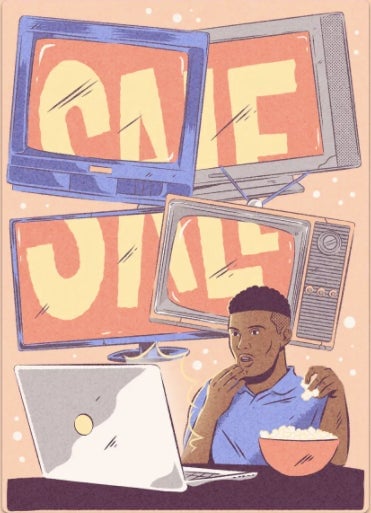The Memo: Mike Tyson, carpooling, stress-crying at work
To modern workers everywhere,

To modern workers everywhere,
Earlier this year, boxing superstar Mike Tyson shared astonishing video clips from one of his recent sparring sessions. At 53, the former multi-year world heavyweight champion appeared as fearsome as ever.
A couple of months later, Tyson joined talk shows and podcasts to explain his return to training: He is scheduled to appear in an exhibition fight with Roy Jones Jr., 51, also a former champion, on Nov. 28. The match, which was originally scheduled for September, will double as the inaugural event for Tyson’s new venture, the Legends Only League, which is producing the event. “I don’t believe in the fountain of youth, but something just came over me and I’m back,” Tyson told NBC talk-show host Jimmy Fallon.
The Legends Only League would be recruiting other former athletes who may have retired from pro sports, but still “have it.” The league is for “whoever, I don’t care, basketball, pool sharks, all the ex-legends who want to play and are still able to play, and are still beautiful, like myself, they can come with us,” Tyson said, name-checking Wayne Gretzky, Dennis Rodman, Metta World Peace, and Diego Maradona. Tennis, ping pong, and handball players, too, he said—they’re all invited. Just because they’re “old” for their sports, he said, “Why do they have to not do what they do?”
To be sure, there are few jobs for which having accumulated time in the ring is seen as an asset. People might respect longtime academics, but often they’re not the ones invited to host podcasts or give TED Talks. In the tech industry, employees in their late 40s are at risk of being stamped “irrelevant.” This form of prejudice is insanity—and it threatens everyone who intends to keep “doing what they do” as the years pass.
To start changing mindsets, we need more formulations like Legends Only to knock out the more cringeworthy terms for older folks. “Silver sneakers,” the “silver tsunami,” “mature” or “seasoned” professionals—none of it sounds nearly as dignified as being described as a legend.—Lila MacLellan

Five things we learned this week:
The startup Adam Grant is betting on to fix bias in hiring is out of stealth mode. It’s called BrightHire and it wants to make the interviewing process impartial.
Jane Fraser’s promotion to CEO at Citigroup is next-level inclusion. It’s not enough for companies to keep high-achieving women waiting in the wings.
Executives would be wise to embrace employee activism. There is value in it, for companies and for capitalism.
Carpooling is poised to make a global comeback. Waze is already seeing a lot more of it in Brazil and Mexico, as more offices reopen there.
Cool job alert: New York City’s sanitation department has an artist-in-residence role. It’s been held by the same woman since 1977, and her new exhibition is especially poignant.
It’s a fact
Nearly 45% of Indian women recently surveyed by LinkedIn said they’re working outside normal business hours while in lockdown. Only 25% of men reported the same. The gender divide has a clear culprit: childcare.
Struggling to get things done?
You’re not alone. New challenges present new opportunities to rethink our time management strategies and put a more efficient routine into action—one built around the realities of working from home. And we’ll help you build it this week at our Quartz at Work (from home) workshop.
Register to join us on Thursday, Sept. 17, from 11 am-12 pm US eastern time, for a one-hour workshop on how to build a sustainable productivity routine. We’ll address the needs of procrastinators, perfectionists, parents, and anyone else facing common obstacles to optimal productivity. This live Quartz at Work (from home) workshop is free for anyone to join. A recording and recap will be made available exclusively to Quartz members. Access our library of past workshop recordings here.
30-second case study
This is Quartz at Work editor Heather Landy, with this week’s case study. Earlier this month, I served as a reference for a beloved former colleague. I smoothly made my way through the online questionnaire, checking boxes that indicated my serious respect for the person’s work and collegiality. And then I was asked to rate, on a five-point scale, how this person handles stress on the job. I instantly thought of the handful of discussions we’d had in which she grew teary-eyed, and in one case openly cried, in the face of difficulties that were beyond her control.
I had a quick, two-part conversation in my head.
Part 1: Was this the place to take points off if I was really being honest? Then again, the tears were arguably a logical and understandable response to what she was dealing with. But even if I felt they were, could I count on her new employer feeling the same way?
Part 2: Who’s to say what an exemplary response to stress is, anyway? This former colleague never made a scene or shirked her duties; she simply engaged in the very human act of producing tears. If that’s seen as a negative, are we unduly penalizing highly competent people who happen to be sensitive? Is this where women, especially, get unfairly labeled or held back? Indeed it is! But why would I even need a conversation with myself to arrive at that realization?
Readers, I checked the box indicating this woman was perfectly capable of handling stressful situations—because she genuinely was.
The takeaway: Sometimes the chance to push for progress is a grand opportunity that all but announces itself. More often, it arrives in quiet moments we can easily miss if we aren’t ready for them. I cut it close on this one; my first instinct was to penalize the crying, and I feel lucky that I gave myself a few seconds to think it through.
Workplaces have changed a lot in the past 20 years, but our norms have not caught up—including our norms around crying, which are tricky, gendered things. When you are advocating for others, take time to question every assumption that’s likely to be made about them. Do it enough, and you might even change some outmoded norms for the rest of us.
Words of wisdom
“[T]he whole economic history of cities relies on the spatial proximity of firms hiring similar workers.”—Rachel Meltzer, associate professor of urban policy, The New School
+ What will coronavirus do to the world’s great commercial districts? We queried several experts in urban planning and revival. Read about their predictions here.
What are you watching?

Advertisers have a strong financial incentive to keep investing in diversity: 62% of consumers say that a brand’s diversity or lack thereof impacts their perception of it, according to a 2019 Adobe survey of over 2,000 adults in the US and UK. And 34% say they’ve stopped supporting a brand because they didn’t see their own identity reflected in its advertising.
Still, racism in advertising is far from over—particularly when it comes to the problem of colorism. One way that many ads continue to perpetuate racial bias is by prioritizing light-skinned people as the chosen representatives of all Black people—what Jason Paul Chambers, an associate professor of advertising at the University of Illinois, calls the “lighter, brighter, better” approach.
Read more about the insidious racism in television commercials, part of Quartz’s new field guide to the future of the TV advertising industry.
Not a member? Get full access to Quartz and to all of our membership-exclusive field guides today. Subscribe now and take 40% off your first year of membership.
ICYMI
What to say to someone who loses their job because of the pandemic. Sadly, this remains needed advice in many parts of the world. But should a friend, family member, or colleague find themselves laid off, just remember there is one thing you can always offer them: validation of their feelings that the situation sucks. Quartz at Work’s Lila MacLellan spoke with psychologist Robert Leahy, director of the American Institute for Cognitive Therapy and author of the 2013 book Keeping Your Head After Losing Your Job, and shares his best advice for handling conversations with the recently unemployed, in this helpful piece from our archive.
You got The Memo!
Our best wishes for a productive and creative day. Please send any workplace news, comments, punching bags, and carpooling tips to [email protected]. Get the most out of Quartz by downloading our app and becoming a member. This week’s edition of The Memo was produced by Heather Landy and Sarah Todd.